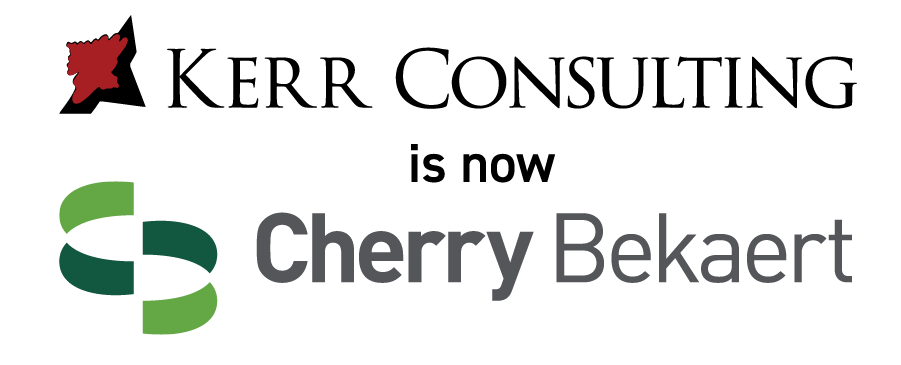The Future of Finance and Accounting: Dominating Trends in 2023
The world of Accounting and Finance has never been static; it constantly evolves, driven by technological advancements, economic shifts, and changing business landscapes. As we step into 2023, the pace of transformation in this sector has reached unprecedented levels. At the forefront of these changes are the surging waves of automation and Artificial Intelligence (AI), reshaping the way businesses manage their finances and accounts.

The rise of Automation and AI in accounting and finance
In recent years, automation and AI have become more than buzzwords; they have become essential tools for organizations striving to stay competitive in a rapidly changing business environment. Let's delve into the key aspects of this revolution.
The necessity of automation during labor shortages
One of the driving forces behind the acceleration of automation in the accounting and finance sector is the growing labor shortage. With an increasing number of skilled professionals in high demand, businesses are facing challenges in hiring and retaining the necessary talent. This has made automation a lifeline for many, allowing them to streamline processes, reduce the reliance on human labor, and optimize their operations.
Imagine a scenario where a finance team no longer needs to spend countless hours manually reconciling transactions or processing invoices. Automation tools can handle these routine tasks with precision and speed, freeing up human resources to focus on higher-value activities like strategic financial planning and analysis.
Case Study: The hospitality industry's transformation
To illustrate the real-world impact of automation and AI, consider the hospitality industry's remarkable transformation. In a sector known for its high volume of financial transactions and stringent customer service standards, staying competitive is a continuous challenge.
Recently, many hotel chains and resorts have embraced AI-powered chatbots for guest inquiries, reservation management, and even in-room services. These chatbots not only enhance the guest experience by providing instant responses but also collect valuable data on guest preferences and behavior, which can be leveraged for targeted marketing and pricing strategies.
Moreover, behind the scenes, accounting departments in these establishments are benefiting from AI-driven systems that monitor expenses, track revenue, and even predict future financial trends. This proactive approach enables them to make data-driven decisions and allocate resources more effectively.
In the next sections, we'll explore how organizations can maximize the potential of existing technology, delve into the role of AI, ML, and RPA, and discover how superapps are transforming customer understanding and data in the Accounting and Finance sector.

Maximizing the potential of existing technology
In our journey through the evolving landscape of Accounting and Finance in 2023, we've witnessed the increasing significance of automation and AI. But it's not just about adopting the latest tools; it's also about harnessing the full potential of the existing technology ecosystem. Let's explore how organizations are doing just that.
Unlocking unused capabilities: The untapped power of present tech
In many businesses, technology stacks have grown organically over time. This can lead to the accumulation of software and systems with underutilized capabilities. Forward-thinking finance and accounting professionals are taking a fresh look at their existing tools to uncover hidden potential.
For instance, accounting software that was originally adopted for basic bookkeeping functions can often do much more. Advanced features for financial analysis, budgeting, and forecasting may have gone overlooked. By investing time in training and reconfiguration, organizations can unlock the full value of their existing software, improving efficiency and decision-making.
Moreover, cloud-based solutions are becoming the backbone of modern finance departments. They not only provide flexibility and accessibility but also offer a plethora of integrated services that can be leveraged to streamline operations further.
Emphasizing automation: AI, ML, and RPA's roles in progress
While leveraging existing technology is crucial, it's equally important to stay at the forefront of technological advancements. In 2023, Artificial Intelligence (AI), Machine Learning (ML), and Robotic Process Automation (RPA) are playing pivotal roles in driving progress in accounting and finance.
AI-powered financial analysis tools are revolutionizing the way businesses interpret their financial data. These systems can detect patterns, anomalies, and trends in vast datasets, enabling organizations to make more informed decisions. Whether it's predicting market fluctuations, identifying potential risks, or optimizing investment strategies, AI-driven insights are invaluable.
Machine Learning, on the other hand, is being used to enhance credit risk assessment. By analyzing historical data and assessing customer behavior, ML algorithms can provide more accurate risk assessments, allowing organizations to extend credit to deserving customers while minimizing losses.
Robotic Process Automation (RPA) continues to be a game-changer for automating repetitive, rule-based tasks. Finance and accounting departments are deploying bots to handle invoice processing, data entry, and reconciliation, significantly reducing error rates and freeing up human resources for tasks that require critical thinking and judgment.
In the next section, we'll explore the impact of superapps in transforming customer understanding and data management in the Accounting and Finance sector, followed by a discussion on how businesses can prepare for future shifts in this dynamic landscape.

Superapps: Transforming Understanding of Customers and Data
In the realm of Accounting and Finance, staying competitive goes beyond just managing numbers; it's about understanding your customers and harnessing the power of data. In 2023, the emergence of superapps is revolutionizing how organizations achieve this.
Improving customer experience through data awareness
Superapps are comprehensive platforms that offer a multitude of services and features under one digital umbrella. These apps have become an integral part of people's lives, allowing them to perform a wide range of tasks, from ordering food to managing finances and booking travel.
For businesses, superapps provide a unique opportunity to gain deep insights into customer behavior. By aggregating data from various interactions, superapps can create a comprehensive customer profile. This allows organizations to tailor their financial services and offerings to individual preferences, thus improving customer experience and loyalty.
Imagine a superapp user who frequently orders food delivery through the app and also uses it for financial transactions. The app can analyze this data and offer personalized financial advice or even suggest investment opportunities based on the user's spending patterns. This level of personalization not only enhances the user experience but also strengthens the customer-business relationship.
Automation's role in ESG reporting and carbon accounting
In an era where environmental, social, and governance (ESG) considerations are becoming increasingly important, superapps are also playing a crucial role in ESG reporting and carbon accounting. These apps facilitate transparency and accountability in a way that was previously challenging to achieve.
Superapps can track and report on a company's ESG performance in real-time. For example, they can monitor and report on carbon emissions associated with transportation, supply chain operations, and even employee commuting. This real-time data enables businesses to take proactive steps towards reducing their environmental footprint.
Moreover, superapps can help businesses engage with customers who are environmentally conscious. They can provide insights into the sustainability of products, offer eco-friendly alternatives, and even calculate the carbon impact of purchases. This empowers consumers to make informed choices and drives businesses to adopt more sustainable practices.
As superapps continue to evolve and expand their capabilities, they are reshaping the way organizations understand their customers and manage their data. In the following section, we'll discuss how businesses can prepare for future shifts in the Accounting and Finance sector, including potential impacts of a recession and strategies for resilience.

Preparing for Future Shifts in Finance and Accounting
As we navigate the dynamic landscape of Accounting and Finance in 2023, it's essential to not only embrace current trends but also anticipate future shifts. One critical consideration is how businesses can prepare for the potential impact of a recession and, more importantly, how to stay resilient in the face of economic challenges.
The potential impact of recession and how to stay resilient
Economic downturns are a natural part of the business cycle, and history has shown that they can have a profound impact on the finance and accounting sector. Here are key strategies for staying resilient during a recession:
- Financial Forecasting: Businesses should invest in robust financial forecasting models. These models enable organizations to anticipate potential cash flow issues and make informed decisions regarding cost-cutting measures or investment prioritization.
- Cost Management: During a recession, managing costs becomes paramount. Finance departments must scrutinize expenses, identifying areas where savings can be achieved without compromising essential operations.
- Diversification: Over-reliance on a single revenue stream can leave businesses vulnerable during economic downturns. Diversifying income sources and expanding into recession-resistant industries can mitigate risks.
- Talent Retention: While cost-cutting measures may be necessary, it's vital to retain top talent. Skilled professionals are invaluable during challenging times and can help navigate financial complexities.
- Strategic Investments: A recession can present unique opportunities. Businesses that have conserved capital can consider strategic investments, such as acquiring distressed assets or expanding into new markets at lower costs.
- Debt Management: Managing debt responsibly is critical. Businesses should review and potentially renegotiate debt terms, seek refinancing options, or explore government support programs.
- Customer Focus: Maintaining strong customer relationships is essential. During tough times, customer loyalty becomes a valuable asset. Businesses should prioritize customer satisfaction and adapt their offerings to meet changing needs.
- Adoption of Technology: Technology, including AI and automation, can enhance efficiency and reduce operational costs. Embracing these tools can provide a competitive edge even in challenging economic climates.
- Risk Assessment: Regularly assess and update risk management strategies. This includes identifying and mitigating risks related to supply chain disruptions, market volatility, and regulatory changes.
- Resilience Planning: Develop a comprehensive resilience plan that encompasses various scenarios. Having a well-prepared strategy in place can help businesses respond effectively to unexpected challenges.
In conclusion, while the Accounting and Finance sector faces unprecedented changes driven by automation, AI, and superapps, it's also vital to remain vigilant and adaptive in the face of economic uncertainty. By implementing these strategies, businesses can not only navigate the potential impact of a recession but emerge stronger and more resilient in the ever-evolving financial landscape of 2023 and beyond.
Conclusion
The year 2023 has ushered in a new era for the Accounting and Finance sector, marked by remarkable trends and transformations. Automation and Artificial Intelligence (AI) are no longer distant concepts; they are integral to how businesses manage their finances and accounts. Existing technology is being reimagined and optimized, and superapps are reshaping customer understanding and data management.
Key Takeaways
As we wrap up our exploration of these trends, let's recap the key takeaways:
- Automation and AI: Automation is no longer a luxury but a necessity, particularly in the face of labor shortages. AI is revolutionizing financial analysis, risk assessment, and data-driven decision-making.
- Leveraging Existing Tech: Don't overlook the untapped potential of your existing technology stack. Reevaluate and maximize the capabilities of your current tools, and embrace cloud-based solutions for agility.
- Superapps: These comprehensive platforms are transforming customer interactions and data management. They offer insights for personalized customer experiences and play a crucial role in ESG reporting and sustainability efforts.
- Preparing for the Future: Economic downturns are a reality, and businesses must be prepared. Robust financial forecasting, cost management, and strategic investments are key to resilience.
- Technology Adoption: Embrace technology to enhance efficiency and reduce costs. AI, ML, and RPA can automate repetitive tasks, freeing up resources for strategic initiatives.
- Customer-Centric Approach: In a competitive landscape, prioritize customer satisfaction and loyalty. Superapps can help tailor services to individual preferences, creating a more personalized experience.
- Risk Management: Regularly assess and update risk management strategies to mitigate various risks, from supply chain disruptions to regulatory changes.
- Resilience: Develop a comprehensive resilience plan to navigate unexpected challenges and emerge stronger.
In this ever-evolving landscape, staying ahead requires not just keeping pace with these trends but also anticipating and adapting to future shifts. By embracing technology, optimizing existing resources, and maintaining a customer-centric approach, businesses in the Accounting and Finance sector can thrive in 2023 and beyond.








